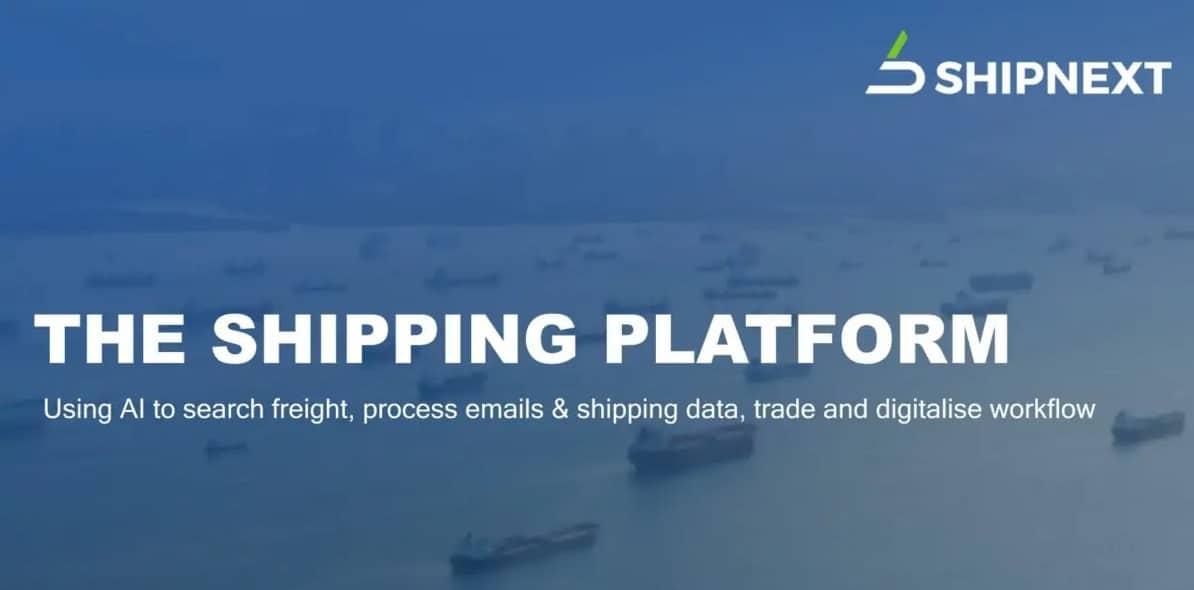Table of Contents
The shipping and freight industry is undergoing a seismic shift, driven by advancements in AI and automation. These cutting-edge technologies are redefining the role of logistics in global trade, offering smarter solutions and heightened efficiency. Innovations in cargo shipping tracking and contract management software from SHIPNEXT exemplify how technology is revolutionizing logistics processes. Let’s explore the transformational role of AI in today’s shipping landscape.
The Role of AI and Automation in the Future of Freight Forwarding
AI is revolutionizing freight forwarding, allowing companies to make smarter, faster decisions. By leveraging artificial intelligence, the sector can analyze massive volumes of data, spot trends, and automate tedious manual tasks, enhancing overall efficiency.
AI has had a major impact on freight forwarding in several ways, including:
- Dynamic pricing analysis. AI forecasts sea, route, and shipping rate fluctuations, helping businesses secure cost-effective options.
- Predictive analytics. Organizations can foresee disruptions in our transport networks and preemptively adjust routes or schedules.
- Digital documentation. Automating the handling of shipment records by AI improves data accuracy and reduces administrative bottlenecks.
By adopting these AI-driven practices, companies can improve operational agility and remain competitive in a dynamic market.
How AI and Automation are Shaping Modern Logistics
Modern logistic operations increasingly depend on automation and AI-based solutions to streamline tasks and optimize workflows. These advancements benefit areas ranging from warehouse management to end-to-end supply chain coordination.
Key applications of AI and automation in logistics include:
- Warehouse efficiency;
- Automated inventory management for accurate stock monitoring;
- AI tools for sorting and organizing goods to reduce human error;
- Dynamic transportation planning;
- Real-time tracking of shipments for optimized delivery;
- Automatic route adjustments to bypass delays or bottlenecks during transit.
By implementing these technologies, businesses can operate more efficiently while meeting growing customer demands.
Trend Prediction
AI is invaluable for predicting market trends and streamlining the supply chain. By analyzing historical data and current shipment patterns, AI uncovers actionable insights for future planning.
Some uses for trend forecasting in logistics include:
- Demand prediction: AI helps businesses prepare for seasonal surges in shipments or warehouse activity.
- Cost forecasting: Identifying potential hikes in freight rates or fuel prices helps companies make smarter contracts with suppliers.
By accurately predicting trends, businesses ensure their logistics operations are flexible, prepared, and highly efficient.
Coordination and Optimisation of Transport
One of AI’s strongest capabilities lies in optimizing transport coordination. Leveraging vast data sets enhances the interconnectedness of various logistics elements, improving timeliness and cost efficiency.
Key benefits include:
- Route optimization. AI technology maps the fastest and most cost-effective delivery routes. Predictions about sea weather conditions can be used to replan shipping paths and avoid costly delays.
- Energy savings. Fuel consumption is reduced through more efficient transportation patterns.
These AI-driven solutions ensure smooth transitions between transport phases, such as from marine shipping to last-mile delivery.
Support for Multimodal Transport
AI excels at supporting multimodal transport, enabling seamless coordination across different transportation methods such as air, road, and sea.
Key improvements made possible by AI in multimodal logistics:
- Synchronization across modes (e.g., railway handoffs to port arrivals) to reduce downtime.
- Optimized container utilization for each transport phase, minimizing resource waste.
- Real-time adjustments to multimodal schedules in response to disruptions.
Such seamless coordination ensures that multimodal logistics consistently meet industry standards for speed and cost-efficiency.
Impacts of Artificial Intelligence in Logistics
The integration of AI into logistics has transformed how we handle our supply chains. From automating freight forwarding to better management tools, its effects are wide-ranging and profound.
Key Impacts of AI:
- Reduced costs. Tools like automated contract management software eliminate overspending through intelligent document handling. Optimized container loading and delivery planning save on unnecessary penalties.
- Improved environmental impact. Streamlined route planning minimizes fuel use, cutting down emissions in marine and overland transport.
- Enhanced visibility. AI-powered cargo shipping tracking ensures transparency throughout the shipping process, benefiting stakeholders.
The adoption of AI has made logistics not only smarter but also more sustainable and customer-centric.
Conclusion
The role of AI and automation in logistics is revolutionizing the freight industry. From automating warehouse management to enhancing multimodal transport systems, artificial intelligence delivers unparalleled efficiency and strategic value.


